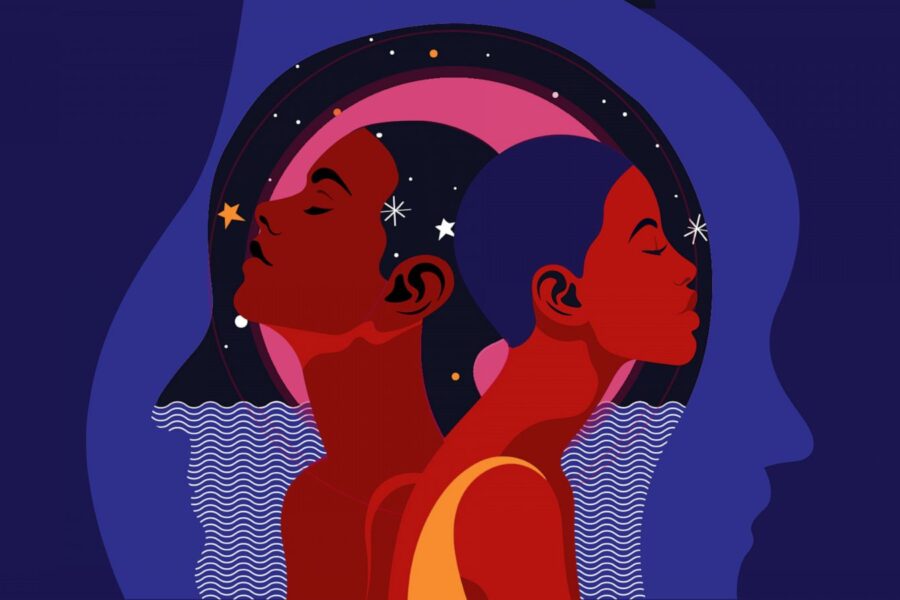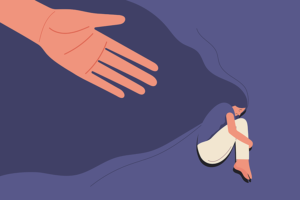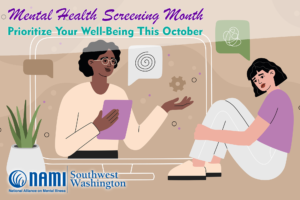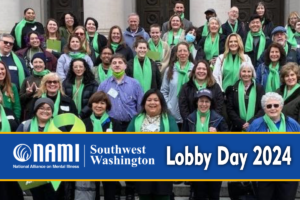Black mental health matters.
To say this is an exponentially tough time for black people in America would be an understatement – and that’s why protecting the mental health of this community is vital.
The deaths of Breonna Taylor, Ahmaud Arbery and most recently George Floyd, among countless lives lost at the hands of police brutality — in addition to simultaneously experiencing a disproportionate rate of deaths from COVID-19 — has left many people of color fighting through psychological warfare.
During this mental health state of emergency, black communities are not only protesting, but many are also looking for ways to find peace.
African Americans are 10% more likely to experience serious psychological distress than other races.
African Americans are 10% more likely to experience serious psychological distress than other races, according to Health and Human Services’ Office of Minority Health. Experts agree that these alarming statistics will only increase without elevated access to coping mechanisms.
“Self-care is how we take our power back and go farther,” Lalah Delia, author of “Vibrate Higher Daily,” and a wellness educator, told “GMA.”
This is especially true during a time of activism. Delia reflected on how longtime civil rights activists, such as Ericka Huggins and Ruby Sales, have admitted to experiencing burn out in years past.
“They also were moving so fast, and in survival mode, they too burned out without proper care,” Delia said.
“This is why pouring into ourselves is vital, especially at this time and in this uprising,” she said, adding, “This time, we have wellness awareness and tools to help carry us through.”
Mental advocates such as Latham Thomas, who is a doula and founder of wellness platform Mama Glow, as well as psychologist and founder of mental health platform/podcast “Therapy for Black Girls,” Dr. Joy Harden Bradford, have also become guiding lights leading the charge in uplifting the spirits of people of color and have provided best practices for surviving through this triggering time.
Finding Stillness
For starters, Delia advises that it is important to listen to your body and take time to process everything being experienced. “Allowing ourselves time to be still and fully process is how we access our calm mind as well as access higher solutions,” she said. “A calm mind is a powerful mind and tool.”
“This is vital, especially in times of challenge, chaos, planning, organizing and uprising,” she added. “Spend some part of the day centering into your power. Meditations and breathing practicing are great for this.”
There are a wide variety of virtual meditations available for free or at very low cost from Liberate, Insight Timer, Calm, Beditations and more.
Join a safe space or group therapy
“I really love the idea of coming together,” said Thomas. “I think that’s a great way for people who haven’t necessarily gotten their feet wet in therapy to have access to a free source.”
She also mentioned that while the coronavirus pandemic has made it difficult to physically come together due to social distancing practices, many group therapy sessions have been moved online. Therapy for Black Girls is a great place to start. Led by Bradford, this platform offers group-style therapy through Instagram Live and podcasts.
Move Mindfully
“One more way to mental relief is to circulate the energy in your body around,” said Delia. “Do some type of physical movement in or outdoors. Think of the terms ‘walk it off, ‘shake it off’ or ‘dance it out.'”
A message on mental health for Black mothers:
Prior to the coronavirus pandemic, Black maternal mortality rates had already risen to four to fives times higher than that of white women, according to the Centers for Disease Control and Prevention. Now, in addition to the disproportionately rising death tolls of Black people due to coronavirus, studies show this could impact that rate even further.
There are also several mothers that fear for the future lives of their Black children and how they will be viewed in the world.
“This is a hot-button issue, but it’s not an issue that’s going anywhere,” said Thomas.
As someone who is also raising a son, Thomas has embraced the importance of reclaiming joy. “I am centering my son’s joy, and that is how I’m moving forward in this time,” she said.
“I want to talk about joy, I want to talk about what’s possible for us, I want to talk about our greatness and our excellence, but I also want to talk about just what it means to reclaim your joy and exist as a Black person in this time,” she continued. “That’s our birthright.”
Breaking Historic Patterns
“Black people have generationally had to overlook their own emotions, pain, well being, mental health and trauma to take care of white people’s feelings,” said Delia. “We have had to perform this numbed-strong role for so long that we forgot, or perhaps didn’t realize, it was necessary to take care of ourselves first and foremost.”
Experts advise that now is really the time to pour back into yourself if you haven’t done so in the past, and make time for yourself paramount.
Source: https://www.goodmorningamerica.com/wellness/story/black-mental-health-matters-cope-time-social-injustice-71077759?fbclid=IwAR2V9wW5cIbWw9EOPBKZ52LSKLhhIjzsrh2OasFycF52IOIMiYj-hazAW3s




